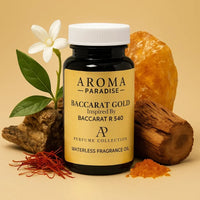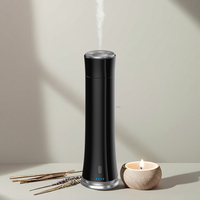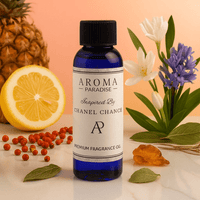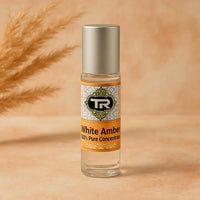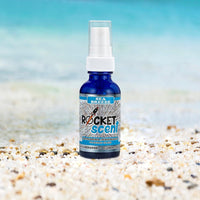
Peppermint Oil vs Essential Oil: Understanding the Differences and Benefits
Share
In the growing world of aromatherapy and natural remedies, many people find themselves comparing peppermint oil vs essential oil, not realizing that peppermint oil is, in fact, one of many essential oils. This confusion often stems from the vast variety of essential oils available, each with distinct properties, uses, and safety considerations. In this comprehensive guide, we will break down the specifics of peppermint oil, how it compares to other essential oils, and how you can safely and effectively incorporate both into your wellness routine.
What is Peppermint Oil?
Peppermint oil, scientifically known as Mentha piperita oil, is derived from the leaves of the peppermint plant, a hybrid of watermint and spearmint. The oil is extracted primarily through steam distillation, which captures its highly concentrated volatile compounds. The two primary active ingredients in peppermint oil are menthol and menthone, which give the oil its signature cooling sensation and minty aroma.
Peppermint oil has a long history of use in both traditional and modern medicine. Ancient civilizations used it for digestive issues, headaches, and respiratory ailments. Today, it remains one of the most versatile and widely studied essential oils. Its invigorating aroma makes it popular in aromatherapy, while its analgesic and antispasmodic properties make it useful for various therapeutic applications.
What Are Essential Oils?
Essential oils are concentrated plant extracts obtained from various parts of plants, including leaves, flowers, bark, roots, and seeds. Unlike synthetic fragrances, essential oils contain the pure essence of the plant’s aroma and chemical composition. The most common extraction methods include steam distillation and cold pressing, though some delicate plants require specialized techniques like solvent extraction or CO₂ extraction.
Essential oils serve numerous purposes: they can enhance mood, promote relaxation, support physical healing, and serve as natural alternatives for skincare and household products. Popular essential oils include lavender oil, tea tree oil, eucalyptus oil, and, of course, peppermint oil. Each oil has a unique chemical profile that determines its therapeutic properties and recommended uses.
Peppermint Oil as an Essential Oil: Where It Fits
When discussing peppermint oil vs essential oil, it's important to clarify that peppermint oil is a type of essential oil. What makes peppermint oil unique among its peers is its high menthol content, which provides a powerful cooling and numbing effect not typically found in other essential oils.
Compared to calming oils like lavender essential oil, which are often used for relaxation and sleep, peppermint oil excels in stimulating the mind, improving focus, and alleviating pain. While eucalyptus essential oil is also known for respiratory support, peppermint oil offers additional benefits for digestive health and mental clarity. This distinctiveness makes peppermint oil a valuable addition to any essential oil collection, provided it's used with proper knowledge and care.
Benefits of Peppermint Oil
The benefits of peppermint essential oil are well-documented and backed by numerous scientific studies:
-
Headache Relief: Topical application of diluted peppermint oil on the temples can reduce tension headaches and migraines, thanks to its muscle-relaxing and analgesic properties.
-
Digestive Support: Peppermint oil capsules are often used to manage symptoms of irritable bowel syndrome (IBS), bloating, and indigestion.
-
Respiratory Aid: Inhalation of peppermint oil vapors helps clear nasal congestion and ease breathing, especially when combined with steam therapy.
-
Pain Relief: Peppermint oil’s anti-inflammatory properties make it effective for muscle soreness, joint pain, and nerve discomfort.
-
Mental Clarity: The invigorating scent of peppermint oil can improve focus, concentration, and cognitive performance, making it ideal for work or study sessions.
Its versatility makes peppermint essential oil a staple in both home remedies and professional aromatherapy practices.
General Benefits of Essential Oils
While peppermint oil offers numerous advantages, other essential oils bring their own unique benefits to the table:
-
Lavender Oil: Promotes relaxation, improves sleep quality, and soothes anxiety.
-
Tea Tree Oil: Possesses powerful antimicrobial and antifungal properties, making it ideal for skin care and wound healing.
-
Eucalyptus Oil: Excellent for respiratory health, cold relief, and sinus congestion.
-
Lemon Oil: Acts as a natural cleanser, mood booster, and immune system supporter.
By understanding the distinct properties of each essential oil, users can tailor their aromatherapy and skincare routines to meet specific needs.
Safety Considerations: Peppermint Oil vs Other Essential Oils
Safety is a critical factor when using any essential oil, and peppermint oil requires particular caution due to its potency:
-
Dilution: Always dilute peppermint oil with a carrier oil (such as coconut, jojoba, or almond oil) before applying it to the skin to avoid irritation or allergic reactions.
-
Sensitive Groups: Peppermint oil should be avoided or used with extreme care in young children, pregnant or nursing women, and individuals with certain medical conditions.
-
Ingestion: Only food-grade peppermint oil, under the guidance of a qualified professional, should ever be ingested.
-
Eye and Mucous Membranes: Avoid contact with eyes and sensitive mucous membranes, as peppermint oil can cause a strong burning sensation.
Other essential oils also require dilution and specific usage guidelines, but peppermint oil’s high menthol concentration demands extra caution.
Common Uses: Peppermint Oil vs Essential Oils
Here’s a quick comparison of how peppermint oil is used compared to other essential oils:
|
Application |
Peppermint Oil |
Other Essential Oils |
|
Topical Use |
Headaches, muscle pain, digestion support |
Skincare, acne, inflammation, relaxation |
|
Aromatherapy |
Focus, energy boost, mental clarity |
Sleep aid, anxiety relief, emotional balance |
|
Inhalation |
Sinus relief, respiratory support |
Cold relief, calming effects |
|
Household Use |
Natural pest repellent, air freshener |
Cleaning, antimicrobial sprays, and deodorizing |
Both peppermint oil and other essential oils serve important roles, often complementing one another in holistic health practices.
How to Choose Between Peppermint Oil and Other Essential Oils
Choosing between peppermint oil and other essential oils depends largely on your personal needs:
-
If you’re dealing with headaches or migraines, peppermint oil is an excellent choice.
-
For stress, insomnia, or anxiety, opt for lavender essential oil.
-
If you need respiratory support during cold season, both peppermint oil and eucalyptus oil are helpful.
-
For skin concerns like acne or fungal infections, tea tree oil may be your best option.
Understanding the unique benefits of each oil allows you to create a personalized aromatherapy routine that maximizes safety and effectiveness.
Myths and Misconceptions
Myth 1: Peppermint oil is safer because it’s natural.
Truth: Natural doesn’t always mean safe. Peppermint oil’s potency requires proper dilution and careful use.
Myth 2: Essential oils can be used undiluted on the skin.
Truth: Most essential oils, including peppermint oil, must be diluted to avoid skin irritation and sensitization.
Myth 3: Peppermint oil can cure all ailments.
Truth: While peppermint oil offers many benefits, it should not replace medical care for serious conditions.
Educating consumers on these myths ensures safe and effective use of essential oils in everyday life.
How Aroma Paradise Ensures Quality & Purity
At Aroma Paradise, we prioritize safety, purity, and efficacy in every product:
-
Sourcing: We obtain raw materials from trusted farms committed to sustainable, organic practices.
-
Extraction: Our peppermint oil and other essential oils are carefully extracted through steam distillation to preserve therapeutic properties.
-
Testing: Every batch undergoes rigorous third-party testing for purity, potency, and safety.
-
Compliance: We follow IFRA standards to ensure our products meet global safety guidelines.
-
Customer Satisfaction: Our commitment to transparency and quality has earned us a loyal customer base that trusts Aroma Paradise for their aromatherapy needs.
FAQs
Can you use peppermint oil directly on skin?
No, peppermint oil must always be diluted with a carrier oil before topical application to prevent irritation or burns.
Is peppermint oil safe for diffusers?
Yes, when used correctly in a diffuser, peppermint oil can promote mental clarity, improve focus, and support respiratory health.
Can peppermint oil be ingested?
Only food-grade peppermint oil should be ingested, and only under the supervision of a healthcare professional.
How does peppermint oil compare to eucalyptus or lavender oils?
Peppermint oil excels for headaches and digestion, while lavender oil is better for relaxation, and eucalyptus oil supports respiratory function.
Suggestions: Peppermint Oil vs Essential Oils
In conclusion, peppermint oil is one of the most versatile and powerful members of the essential oil family. Its unique properties make it invaluable for pain relief, mental focus, and digestive health. However, like all essential oils, it requires knowledge and care to use safely. Whether you’re using peppermint essential oil diffuser blends or exploring other essential oils comparison options, Aroma Paradise is here to provide you with pure, high-quality products you can trust for your aromatherapy journey.


